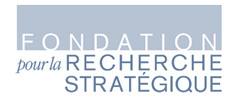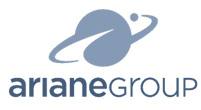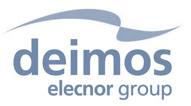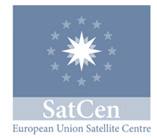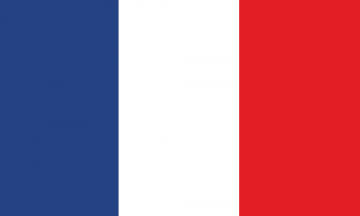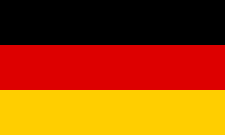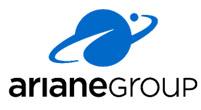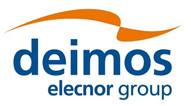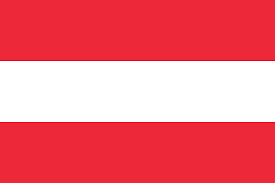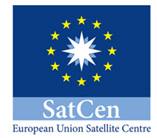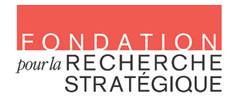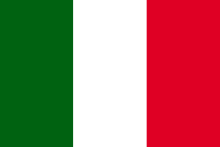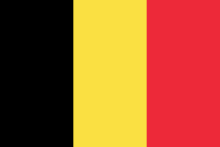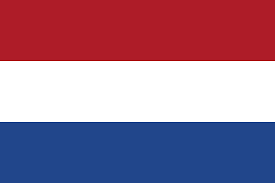Airbus is Europe’s largest aerospace company and one of the Top 10 defence companies worldwide. The 33.000 employees of the Defence and Space division headed by CEO Dirk Hoke achieve revenues of around €13 bn per year.
In the space domain, Airbus has set a benchmark for innovation and reliability for Earth Observation, Telecommunications and Scientific Space Systems and boasts a remarkable grand total of 170 satellites launched. Our customers’ high satisfaction with our satellites has led us into the top group of space companies worldwide.
Airbus Defence and Space has been developing satellites for over 40 years and has contributed to virtually all scientific and Earth observation missions in Europe, whether as satellite prime contractor, ground segment contractor or as a major subcontractor.
Airbus Defence and Space is contributing since several years to Space debris mitigation and space sustainability activities : the SPACEWAYS study will be carried out by Airbus Defence and Space GmbH (the German space business legal entity of the Airbus Defence and Space Division), and Airbus Defence and Space SAS (the French space business legal entity).
Created by Airbus Group and Safran as a 50/50 joint company, ArianeGroup unites all the assets and skills of the two parent groups in launch vehicles and strategic missiles. The world’s leading space access provider, ArianeGroup offers an unrivaled range of launch solutions.
In the civil sector, ArianeGroup is notably responsible for the following missions:
– Development and production of Ariane 5 and Ariane 6 launchers
– Solid rocket motors for the Vega launcher
– Research and design studies for future launch systems
In the defense sector, ArianeGroup has the legacy mission of supporting France’s nuclear deterrent force as prime contractor for strategic ballistic missiles.
Elecnor Deimos provides high-technology engineering solutions, information systems, products and services of maximum quality, innovation and added-value to its customers.
The areas of expertise in Space include systems engineering, ground segment, mission analysis and design, onboard software solutions and satellite integration, in the fields of Science and Exploration, Satellite Navigation, Earth Observation, Space Situational Awareness and Launchers.
The company develops turnkey operational systems for aeronautical and maritime applications, both civil and military. DEIMOS also provides services for the transport sector, applications for the optimisation of industrial processes, digital transformation solutions and location-based services.
In Space Surveillance and Awareness the company has been working for Public agencies (ESA, UKSA, DLR, EUSST) Industry, Eumetsat and other satellite operators. The projects comprise analysis of space debris, specification and design of SSA systems and subsystems, development, validation and deployment of simulation and operational tools, operations of SSA systems, etc.
The European Space Policy Institute (ESPI) is a think tank under Austrian Law that acts as an independent platform supporting decision-makers with an informed view on mid- to long-term issues relevant to Europe’s space activities. Located in the heart of Vienna, World capital of space diplomacy, ESPI was founded in 2003 by the Austrian Research Promotion Agency (FFG) and the European Space Agency (ESA) and is now supported by several European members including national space agencies and leading space industry companies. ESPI fulfils its objectives through multidisciplinary research activities addressing various aspects of the space sector and in particular policy and strategy, security and defence, economy and business as well as legal and international affairs. ESPI regularly publishes books, reports, articles, executive briefs, proceedings or position papers and organises professional events including the annual ESPI Autumn Conference and side events during UN COPUOS sessions.
The European Union Satellite Centre (EU SatCen) is an operational agency of the EU in the field of space and security. It was established by Council Joint Action 2001/555/CFSP in 2001, repealed by Council Decision 2014/401/CFSP in 2014. The EU SatCen is mandated to support the decision-making and actions of the Union in the field of the Common Foreign and Security Policy (CFSP) and in particular the Common Security and Defence Policy (CSDP), by providing, at the request of the Council or the High Representative, products and services resulting from the exploitation of relevant space assets and collateral data, including satellite and aerial imagery, and related services.
SatCen also supports the EU crisis management missions and operations, under the CFSP, the implementation of the Copernicus security services; the establishment of a Space Surveillance and Tracking (SST) capability in Europe, through the EU SST Support Framework in close cooperation with Member States forming the SST Consortium; as well as other EU bodies and international organisations, such as the United Nations, the International Atomic Energy Agency and the Organisation for Security and Cooperation in Europe.
Established in 1992, FRS is an independent, non-profit organisation based in Paris, France. One of its key missions is to conduct research on strategic and international security issues, notably military and defence-related matters. Another role of FRS is to contribute to the strategic debate in France as well as to the dissemination of our research outputs both in France and abroad.
Its experts cover the whole range of security and defence issues, from international relations to scientific, technological and operational questions, as well as defence industry and defence economy, the analysis of cross-cutting threats such as violent extremisms, cybersecurity, proliferation, and health and environmental risks and challenges. FRS is also one of the leading European think-tanks on space and its strategic implications.
FRS has proven expertise in both leading and participating in European-funded projects for the European Parliament, the European External Action Service (EEAS) and the various DGs of the European Commission. As well as SPACEWAYS, FRS is currently managing a project for the EEAS on The Hague Code of Conduct against Ballistic Missile Proliferation (HCoC), and taking part in the EU Non-Proliferation and Disarmament Consortium as well as a H2020 project on the EU’s foreign policy.
Indra is one of the main global consulting and technology companies and the technological partner for the key operations of its clients’ businesses throughout the world. It offers a comprehensive range of proprietary solutions and cutting-edge services with optimal technological capabilities, supported by a corporate culture of reliability, flexibility and adapting to client requirements.
Indra is a world leader in the development of comprehensive technological solutions in fields such as Defense & Security, Transport & Traffic, Energy and Industry, Telecommunications & Media, Financial Services and Public Administrations & Healthcare. Through its Minsait unit it addresses the challenges posed by digital transformation. In 2018 it posted revenues of 3104 million euros and had 43000 employees, a local presence in 46 countries and projects in more than 140 countries.
The Istituto Affari Internazionali (IAI) was founded in Rome, Italy on 11 October 1965 on the initiative of Altiero Spinelli, its first director. A non-profit think tank, IAI is funded by individual and corporate members, public and private organizations, major international foundations, and by a standing grant from the Italian Ministry of Foreign Affairs. The Institute’s main objective is to promote an understanding of international politics through studies, research, meetings and publications, with the aim of fostering the opportunities of all states to move towards the direction of supranational organization, democratic freedom and social justice (IAI Statute, Article 1). IAI has a very strong background in the security field, with its first studies on the security sector conducted with leading European and American research centers dating back to 1967.
Situated in Belgium, in the heart of Western Europe, the University of Leuven has been a centre of learning for nearly six centuries. Today, it is Belgium’s largest university and, founded in 1425, one of the oldest and most renowned universities in Europe. The research in SPACEWAYS will be conducted by the Leuven Centre for Global Governance Studies (GGS).
GGS is an interdisciplinary research and carries out interdisciplinary research on topics related to globalization, global governance processes and multilateralism including a specialisation in space law and governance. It operates on the basis of co-ownership and the strong conviction that interdisciplinary research creates added value to resolve complex multi-faceted international problems. The Centre promotes pioneering projects and actively initiates and encourages interdisciplinary, cross-cutting research initiatives in pursuit of solutions to real world problems. In addition to its fundamental research, GGS carries out independent applied research and advises policy-makers on multilateral governance and global public policy issues. GGS works with academic and policy partners from all over the world, including European Parliament, European Commission, European External Action Service, Committee of the Regions, International Labour Organization (ILO), Organisation for Economic Co-operation and Development (OECD), United Nations Conference on Trade and Development (UNCTAD), United Nations Forum on Sustainability Standards, United Nations Industrial Development Organization, World Bank, World Trade Organization (WTO) and several national governments. In 2019 the Centre was recognized as a Jean Monnet Centre of Excellence on European Space Governance.
OHB System is one of the three large space systems integrators in Europe. Located at two sites in Germany – Bremen and Oberpfaffenhofen – it has more than three decades of experience, specializing in high technology solutions for astronautics, science, Earth observation and navigation, communication and industrial applications. In particular, OHB System specializes in low and medium orbit and geostationary small- and medium-class satellites for communications, scientific research, navigation, and earth observation, leading-edge technologies for manned space flight, models and studies for exploring our solar system as well as reconnaissance satellites and instruments for broadband wireless transmission of reconnaissance image data for greater security and reconnaissance.
OHB System is one of the leading independent forces in the European aerospace sector. It is a sought-after partner for the European Space Agency ESA and the German Aerospace Centre DLR as well as for customers in the private and public sector.
As a major partner of the most successful Space programs and as a key player in space infrastructure operations for more than 30 years, Telespazio France supplies value-added satellite-based services and applications covering all of the key domains of space, from telecommunications and Earth observation to satellite system operations and navigation.
Telespazio France is the French subsidiary of the Telespazio group, which is joint venture between Leonardo (67%) and Thales (33%). Based in Toulouse, Bordeaux, Paris and Kourou (French Guiana), the flagship cities of France’s space sector, Telespazio France delivers its expertise to institutional stakeholders and private firms alike.
We are convinced that a simple link between Man and Space is essential to our life on Earth, because Space is a key technological and human enabler to protect the planet and its inhabitants. Our ambition is to democratize the access to the space services of today and tomorrow, through an open logic of “Space On Demand”. We bring together the skills and partnerships needed to provide the best value solutions, in a market undergoing profound change.
Telespazio France is an active member of most of the national and local space trade associations in France, including the Aerospace Valley global competitiveness cluster, the Community of Ariane Cities (CVA), Aerocampus Aquitaine, the Galaxie club, the INSPACE network and the Inno’vin cluster.
Telespazio, a joint venture between Leonardo (67%) and Thales (33%), is one of the world’s leading players in satellite services. The company, headquartered in Rome (Italy), employs approximately 2500 people, relying on an international network of space centres and teleports, and operating worldwide through many subsidiaries and joint ventures.
Telespazio is a leading company in sectors that are becoming increasingly important to public institutions, business operators and consumers. Its activities range from the design and development of space systems to the management of launch services and in-orbit satellite control, from Earth observation services, integrated communications, satellite navigation and localization, to scientific programmes.
Today more than ever, Telespazio is a true innovator, transforming what were once just possibilities into real services available to an increasingly audience worldwide.
Drawing on over 40 years of experience and a unique combination of skills, expertise and cultures, Thales Alenia Space delivers cost-effective solutions for telecommunications, navigation, Earth observation, environmental management, exploration, science and orbital infrastructures. Governments and private industry alike count on Thales Alenia Space to design satellite-based systems that provide anytime, anywhere connections and positioning, monitor our planet, enhance management of its resources, and explore our Solar System and beyond. Thales Alenia Space sees space as a new horizon, helping to build a better, more sustainable life on Earth. A joint venture between Thales (67%) and Leonardo (33%), Thales Alenia Space also teams up with Telespazio to form the parent companies’ Space Alliance, which offers a complete range of services. Thales Alenia Space posted consolidated revenues of approximately 2.15 billion euros in 2019 and has around 7,700 employees in nine countries.
Thales Alenia Space France, as provider of space solutions for its institutional and commercial customers, designs satellites that have to be built and operated in agreement with the rules allowing safe operations in space that will emerge to handle the Space Traffic Management issues. It is therefore per se an important stakeholder in the current activities and discussions addressing the sustainability of future space missions.
The International Institute of Air and Space Law of Leiden University was founded in 1985. It is one of the leading international academic research and teaching institutes in the world, specialising in legal and policy issues of aviation and space activities in the broadest sense of the word.
Its objective is to contribute to the development of aviation and space law and related policy by conducting and promoting research and teaching at graduate and post-graduate level. The relevance and topicality of the work is guaranteed by an extensive exchange of information with the air transport and space industry. The Institute is guided by a prestigious International Advisory Board





